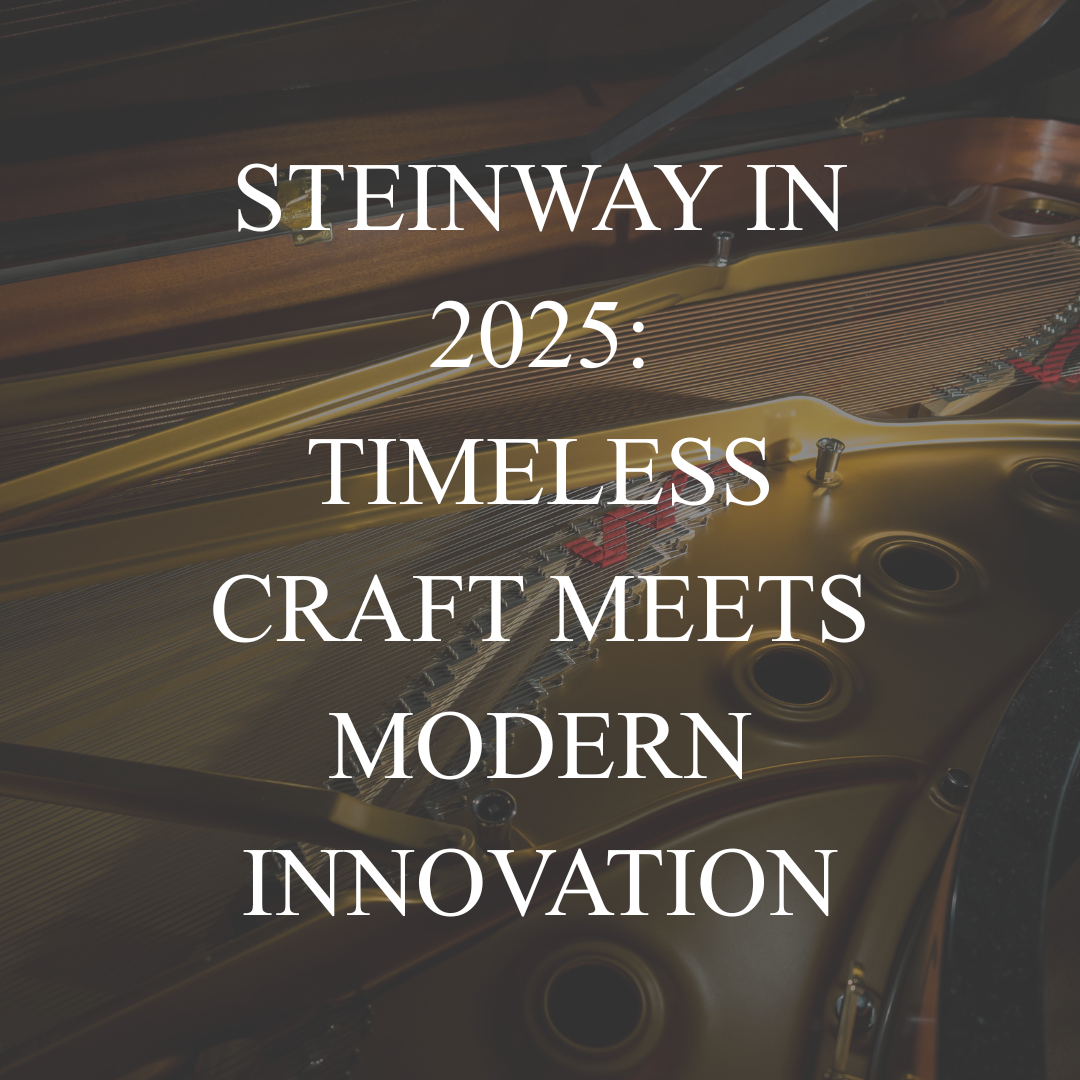
For more than a century, Steinway & Sons has defined what it means to build a truly exceptional piano. But in 2025, the brand isn’t just honoring tradition — it’s evolving. At Northwest Pianos, we continue to see how Steinway’s balance of craftsmanship and technology keeps it ahead of the curve in a fast-changing industry.
Each Steinway grand is still handcrafted through a process that takes nearly a year — a level of artistry that few manufacturers can match. The tone, depth, and feel of a Steinway remain the gold standard for concert halls and recording studios worldwide. But what’s most exciting today is how Steinway is reimagining what a piano can do in the modern world.
The Steinway Spirio | r, for example, has transformed performance technology. This high-resolution player piano can record, edit, and play back performances with such detail that even the softest touch or slightest pedal movement is preserved. Pianists can experience the world’s greatest artists performing live — right from their own living room — with complete authenticity. It’s a bridge between tradition and digital artistry, designed for both professional and private use.
Beyond innovation, Steinway’s commitment to sustainability and responsible craftsmanship continues to resonate with musicians and collectors. Their woods are ethically sourced, and their factories blend old-world techniques with new environmental standards, ensuring every piano not only sounds remarkable but is built to last generations.
At Northwest Pianos, we understand that choosing a Steinway isn’t just a purchase — it’s an investment in legacy. Whether you’re seeking the warmth of a Model O, the grandeur of a Model D, or the future-forward experience of the Spirio, we help every customer find the right instrument for their musical journey.
Because when you sit at a Steinway, you’re not just playing a piano — you’re continuing a story that began over 170 years ago and still inspires the world today.
Comments will be approved before showing up.

Sound quality matters, but how a piano feels matters just as much. Key weight, action responsiveness, and balance across the keyboard all influence whether players enjoy sitting down to practice.

A piano is not a short-term purchase. Unlike many instruments that are replaced or upgraded frequently, a piano is designed to remain in use for decades. This makes ownership a long-term relationship rather than a transaction.

First-time piano buyers often feel pressure to make a “perfect” decision. Brand names, online opinions, and price ranges can quickly complicate what should be an exciting step.